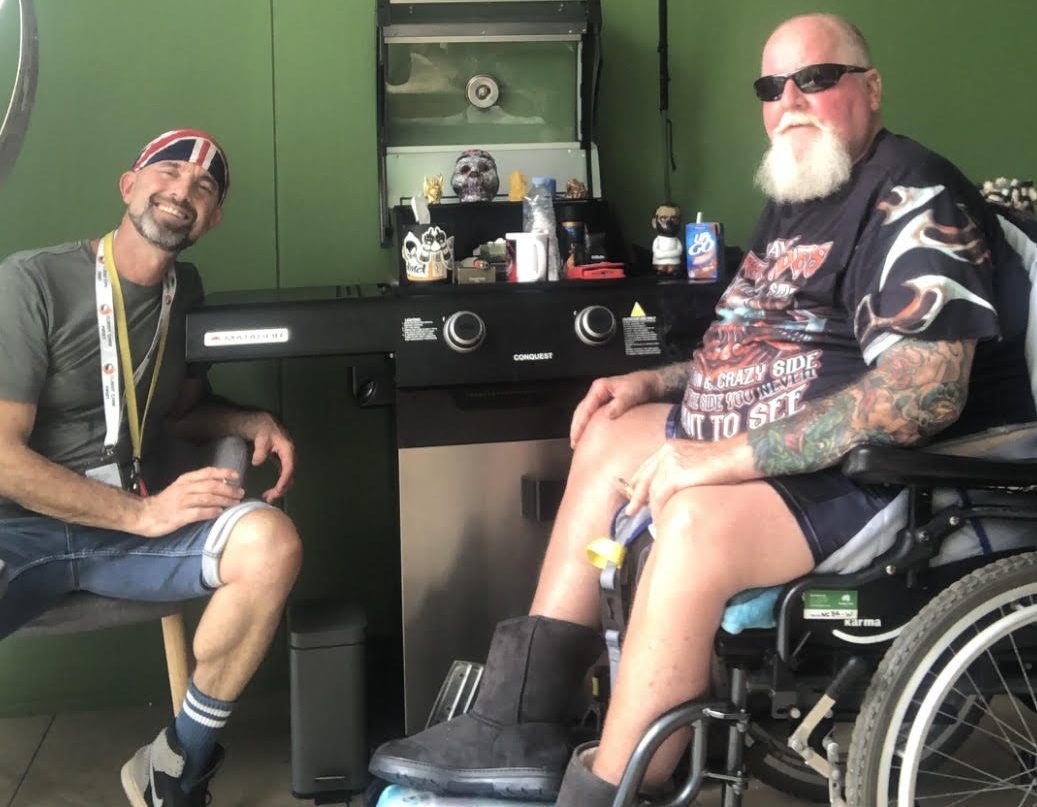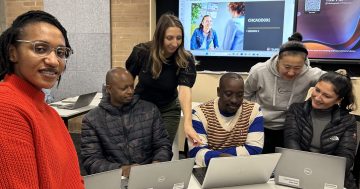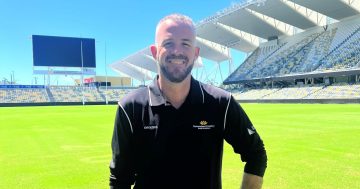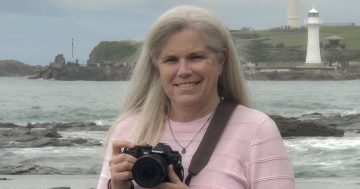
Former professional ballet dancer turned disability care worker Jason Wilcock (left) with one of his clients. Photos: Supplied.
As a former professional ballet dancer, Jason Wilcock is no stranger to great leaps, but his latest – into the world of disability care – is his most unexpected, and perhaps his most rewarding yet.
Jason began learning ballet at age 10, fast-tracked his skills at Beverley Rowles School of Dance in Corrimal and by age 16, was dancing at The Australian Ballet School. There he completed a diploma in advanced classical ballet and upon graduation, joined the Hong Kong Ballet Company at age 18.
His 12-year career took him all over the world, performing for the likes of Opera Australia and Tokyo Disney. He graced the stages of the Sydney Opera House and eventually, at the pinnacle of his ballet career, joined Sydney Dance Company.
Exciting as his career had been, however, the injuries were mounting and he eventually left the company. For a time he worked in horticulture and retail, both of which he enjoyed, but he felt he was at a “fork in the road”.
“I needed a career that was going to passionately move me. It had to be something inspiring, something that could touch my heart like dance did,” he says.
With the disability sector in an NDIS-fuelled jobs boom, Jason caught wind of demand in the sector and enrolled in a Certificate IV in Disability at TAFE NSW Wollongong. Even before graduating, he had secured work at Client Care First in Wollongong.
He says it’s an occupation rich in reward.
“The participants I get to care for, getting to know them slowly, trying to help them achieve their goals, just to make them feel important, to let them know someone is listening to their words, it’s really basic stuff but it’s so fulfilling,” he says.
“It feels like one of the last human rights being addressed in society. The job has made me aware of how many people are living with disabilities in our community.
“You get to a stage of connection with the people in your care that going to work is no longer work – it is a joy and a learning experience every day.”

Jason hopes to use his diverse skills and knowledge in areas such as dance, horticulture and art to enhance the lives of his clients.
In his current role, Jason’s duties include personal care, administering medication, discussing meal plans, booking appointments, allowing clients community access and helping them run errands.
Down the line, he would like to look at palliative care.
“You get so connected to your clients, I feel like it would be heartbreaking to not be with them to the end,” he says.
He also hopes to eventually tap into his diverse skills to start classes and workshops with clients to improve their overall health and wellbeing.
“I want to take a person-centred approach to that, gauge what hobbies and interests my clients have. I have an array of skills that I hope I can use to enhance their lives,” he says.
“My mother is an artist, and I am sure there will be clients who could benefit from the skills she taught me. With a horticulture background, I can help clients who are keen on gardening and of course, with my dancing background, I hope to introduce exercise and movement classes.”
NDIS chief executive David Moody revealed about 430,000 Australians were being supported under the scheme, leaving an estimated national shortage of about 120,000 disability support workers.
TAFE NSW Wollongong disability teacher Christy Lewin urged locals to consider a career in disability, saying a growing skills gap in the industry meant jobs were plentiful.
“The majority of our students secure work before graduating,” she says. “It’s very rewarding work to be able to empower clients to live as independently as possible.”


















